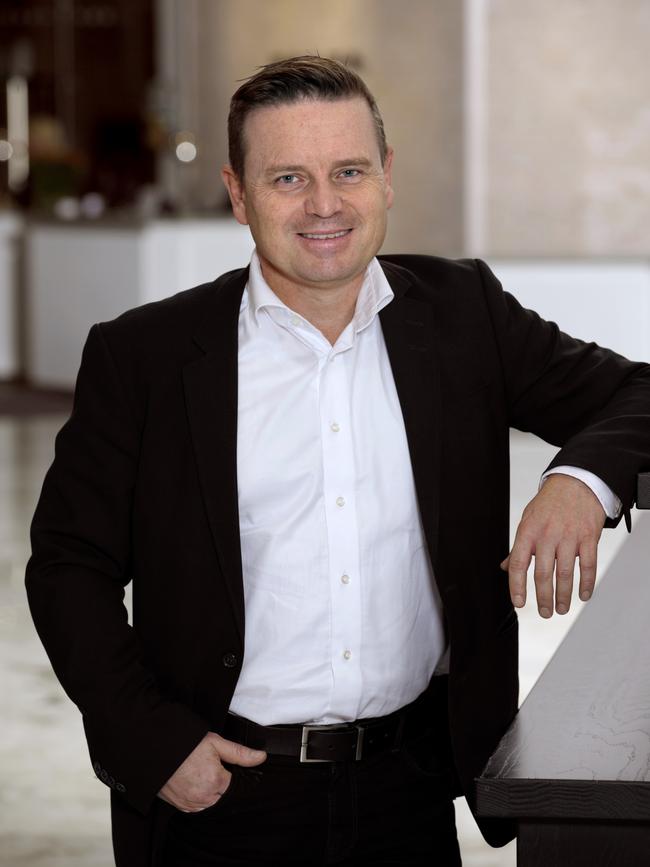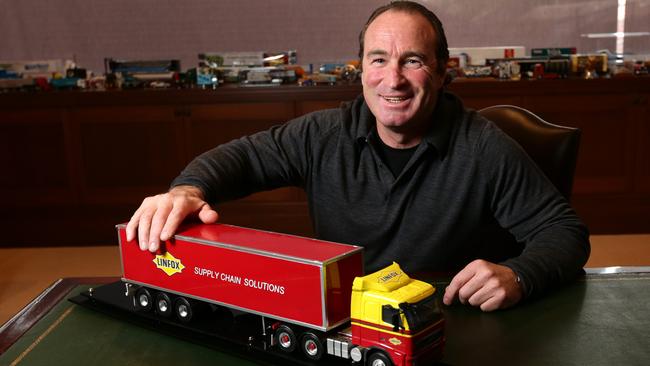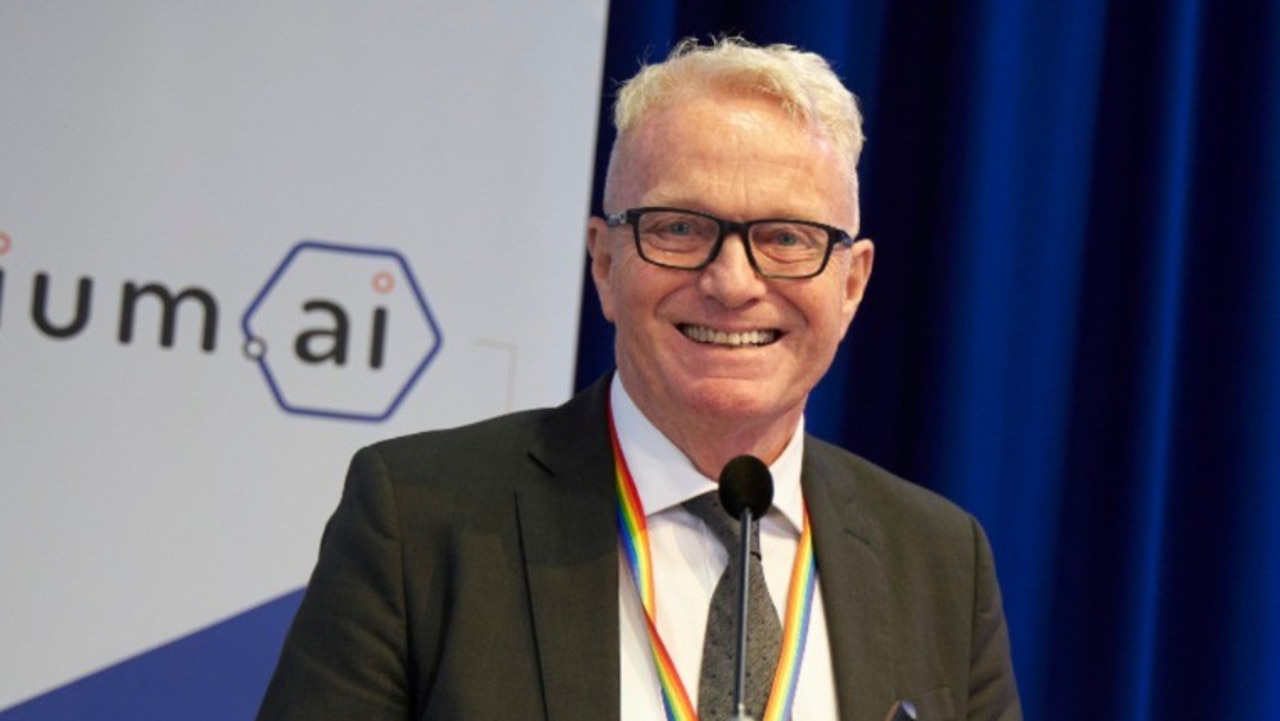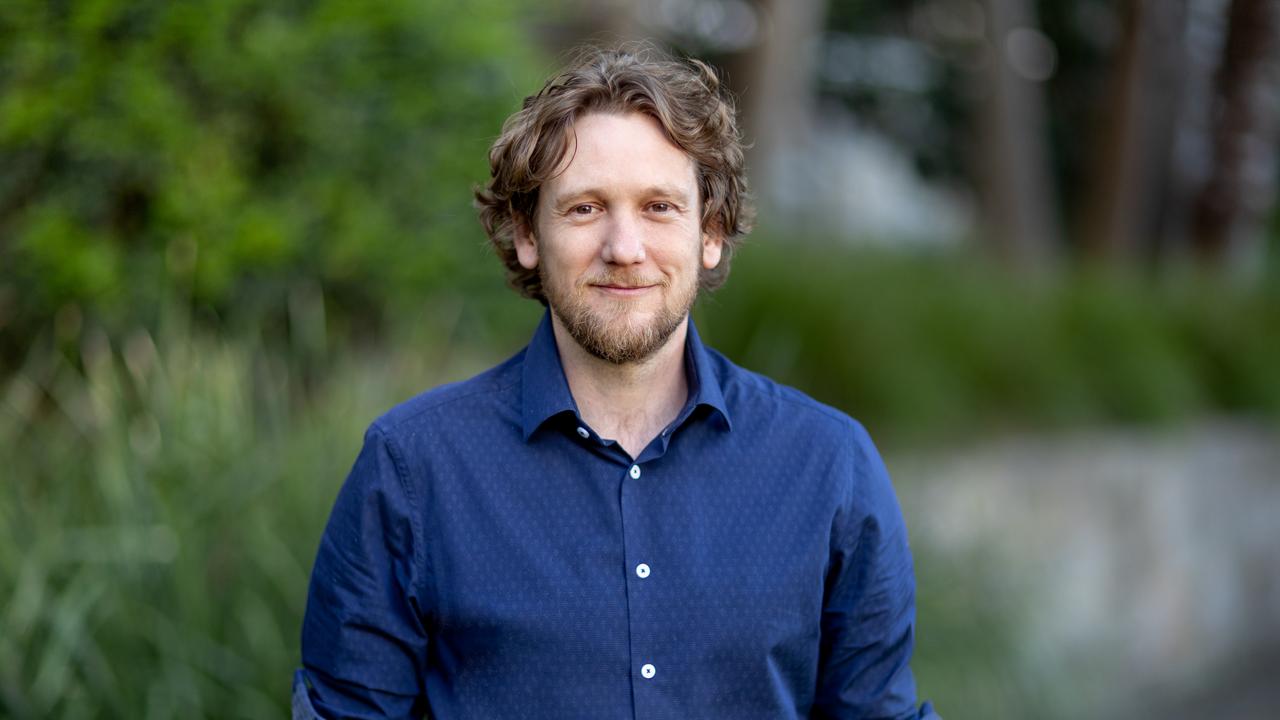Volvo to build electric trucks in Australia and transport giant Linfox signs on as customer
Swedish automotive group Volvo will build the first Australian-made heavy duty electric trucks in Brisbane from next year and Linfox is aboard as one of its biggest customers.

Business
Don't miss out on the headlines from Business. Followed categories will be added to My News.
Volvo Group says it will build the first Australian-made heavy duty electric trucks in Brisbane from next year and that logistics giant Linfox has signed up to become one of its biggest customers.
The truckmaker – which sold its car division 26 years ago – said it was committed to Australian manufacturing as it seeks to “regionalise” its operations amid a changing global trade environment sparked by Donald Trump’s retaliatory tariffs.
“We are here to stay,” Volvo executive vice-president of truck operations Jens Holtinger told this masthead.
“Regarding the geopolitical situation, of course, we can’t comment on tariffs. But we are very clear that we are working on a very regionalised industrial footprint … including our factory here in Australia, which we are very proud of.
“We believe in regional value chains to support our customers close by, and of course the Australian market is very important to us. We want to have optimal support for the types of trucks that we’re building here in Australia.”

Mr Holtinger was speaking as Volvo last week delivered 10 of Linfox’s order for 30 electric trucks.
Executive chairman Peter Fox said the company “thinks in generations” and had pledged to lower emission via electrifying its fleet and moving more freight to rail.
“We believe in leaving the environment in a better condition than we found it for the next generation,” Mr Fox said.
“The biggest impact we can make is the conversion of our fleet to low or zero-emission vehicles and moving our freight on to rail, and we have led the Australian industry in the introduction of the electric fleet.”
Linfox began trialling electric trucks in 2021, beginning with two vehicles before expanding to four the following year. It has since received a $19.6m grant from the Australian Renewable Energy Agency to expand its use of electric trucks, which are now delivering groceries to Coles and Woolworths.
Mr Fox said it would complement the battery-powered fleet with charging infrastructure across three “green distribution centres” in Brisbane, Melbourne and Adelaide.

Mr Holtinger said more incentives were needed to build charging infrastructure to meet the demand for electric vehicles during the next decade.
“We believe that in five to 10 years, at least around one third of vehicles being registered in Europe will be electric. But that will require around 40,000 fast chargers available across Europe, across the big roads,” he said.
“We have some help, maybe also from an Australian perspective, from Brussels, with putting pressure on nations to build out charging infrastructure. But it goes slow in our view and we are firm believers that society needs, at least in the early phases, to incentivise this uptake.”
Volvo’s current models of FM and FH electric trucks have a range of about 300km. But its next generation of trucks, which it will start taking orders for next year, will be able to travel 500km to 600km on a single charge.
Mr Holtinger said this meant logistics companies need to be considered in the use of the vehicles, changing their operations accordingly.
“I think it’s so easy to … believe that you will just switch from electrical to diesel. You really have to look at your flows,” he said.
“We are even looking at relay flows in some of our systems today, where you meet half way, you change a trailer and you continue. So it’s about redefining flows. And of course, right now it is short distances that we are using electrical trucks.”

But Volvo chief technology officer Lars Stenqvist said the future wasn’t all about electric.
“We are also firm believers in the combustion engine going forward. As a matter of fact, 2024 was our record year. We have never, ever invested so much in combustion engine development,” Mr Stenqvist said.
“We don’t have any end date at all for combustion engines, but then only, of course, running on renewable fuels, like biogas, synthetic diesel, different kinds of E fuels, and not the least, also on hydrogen.”
Volvo is also investing in autonomous vehicles capable of running without a driver behind the wheel.
“We will not take out that safety driver before we feel that we have everything under control,” Mr Stenqvist said.
“But that is, to be honest, the next milestone. This has been a development program that we’ve been working on for many years, so extremely exciting.”
Originally published as Volvo to build electric trucks in Australia and transport giant Linfox signs on as customer





